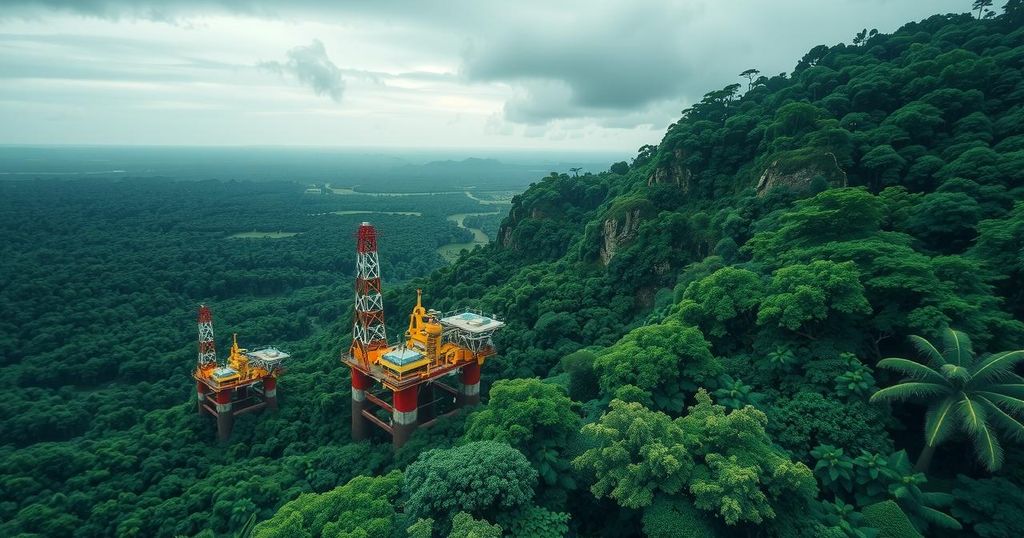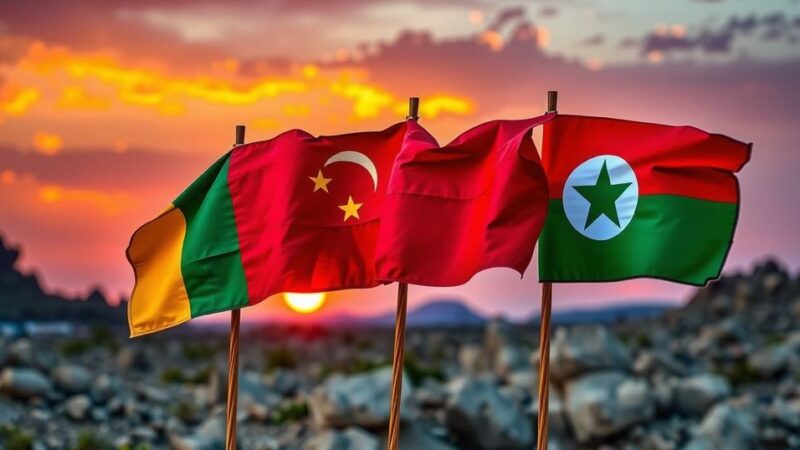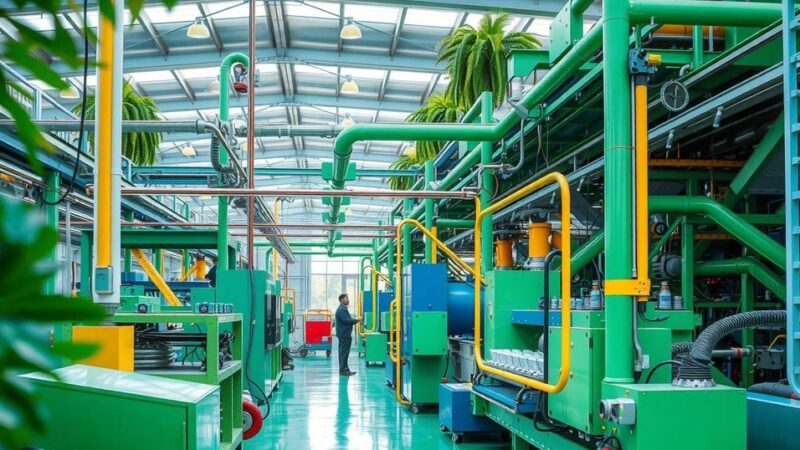Brazilian President Lula da Silva advocates for oil drilling at the Amazon’s mouth, jeopardizing his climate leader image as COP30 nears. Critics argue this initiative threatens biodiversity, Indigenous rights, and climate initiatives. The auction of oil blocks showcases the tension between economic ambition and environmental responsibility, raising alarms among activists ahead of the climate summit.
Brazilian President Luiz Inácio Lula da Silva is advocating for oil drilling at the mouth of the Amazon River, which casts doubt on his climate leadership as COP30 approaches. While Lula claims that oil revenues will support Brazil’s transition to renewable energy, critics argue that this reasoning is fundamentally flawed and risks expanding oil extraction under the pretext of funding climate initiatives. Environmental advocates warn that such projects could cause extensive ecological damage and threaten Indigenous peoples and biodiversity.
Lula’s administration plans to auction over 300 oil blocks, including 47 at the Amazon’s mouth. The president asserts that exploiting these resources aligns with Brazil’s economic interests, citing the wealth generated by neighboring countries from similar ventures. However, critics contest the lack of concrete proposals to channel oil revenues toward renewable solutions, with many emphasizing that funds could be better utilized to support clean energy initiatives.
The situation is further complicated by Brazil’s recent alignment with international energy forums that include major oil producers. This partnership, according to some environmental observers, indicates Brazil’s commitment to expanding fossil fuel projects, thereby undermining its stance as a leader in global climate action. Environmentalists express concern that permitting oil exploration could create a precedent for further exploitation in the Amazon, undermining environmental protection efforts.
Lula’s contradictory positions became more apparent following the election of Davi Alcolumbre, a strong proponent of oil extraction, as Senate President. Lula’s pressure on IBAMA, Brazil’s environmental agency, to approve oil licenses has raised alarms among activists, particularly due to the potential climate impacts and violations of Indigenous rights. Critics suggest that the government’s actions reflect a tension between economic growth aspirations and genuine climate commitment, raising the stakes as COP30 approaches.
The environmental implications of drilling in the Equatorial Margin are serious. Studies suggest that greenhouse gas emissions from potential oil extraction could negate climate gains achieved through Amazon deforestation reduction. This scenario threatens to unravel the progress made during Lula’s initial years in office, where policies were enacted to lower emissions and protect the rainforest.
Petrobras, Brazil’s state oil company, is seeking exploratory drilling rights in ecologically sensitive areas. Activists emphasize that significant biodiversity resides in these regions, and any oil spill could have catastrophic effects on marine life and coastal communities. Indigenous organizations echo these concerns, demanding meaningful consultations about the potential repercussions of drilling in their ancestral lands.
Lula’s recent rhetoric suggests a prioritization of economic gain over environmental integrity, reflecting a broader trend toward oil dependency amidst escalating climate challenges. Environmental specialists caution against such developments, arguing that they threaten both local ecosystems and global climate stability. Critics maintain that approval of oil extraction activities at the Amazon’s mouth would signal a larger shift in Brazil’s environmental policy priorities toward fossil fuel expansion.
President Lula’s push for oil exploration at the mouth of the Amazon raises serious concerns about environmental degradation and Indigenous rights, contradicting his climate leadership image. Critics argue that his rationale for oil extraction undermines Brazil’s climate commitments, especially as it prepares to host COP30. The potential repercussions of this project highlight the urgent need for a balanced approach between economic interests and environmental protection.
Original Source: news.mongabay.com






